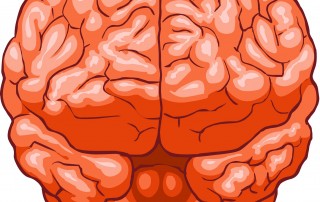oday I’m going to be addressing the top six reasons why people who need help from a counsellor are reluctant to reach out and begin the process. These reasons are gleaned from my years of experience working with people who, after meeting, have asked themselves the question, “Why did I wait so long?” Time Most people would probably describe themselves as busy. Many of us actually are. We may have multiple jobs, multiple hobbies, and multiple children, and all of these entail multiple demands. However, if we take a good look at our schedules, we may find that a good percentage of our “busy” time could be spent much more productively. While I was working my way through university, I was employed by my school’s athletic department as an Academic Coach. Basically, my job was to help the student athletes avoid losing their academic eligibility to play for the sports teams. At the beginning of each semester, I would sit down with each athlete from each team and go over their course schedule, help them set goals, and if necessary teach them study skills and time-management skills. The most common reason I heard from the students to explain academic problems […]
Validating Your Brain (Part 2)
Read Part 1 here Keep in mind that your brain’s task is to survive the moment, not the long-term. Without fail, the automatic behaviors that our brain engages in are accomplishing this task. However, due to its lack of perspective, the brain does not have the ability to coordinate momentary survival with long-term survival. So when your brain is acting, thinking, and feeling on your behalf, what does it think is happening? When we experience automatic behavioral responses, what is the brain trying to tell us? Think of the following example. The next time you feel an itch on your skin (which will be fairly soon, given that I have now invited you to think about it), try to physically look at the area of your skin that is itchy but DO NOT ITCH IT! Just look at the itchy place. If you can’t physically see it, try to visualize it in your mind as vividly as possible. You may even want to visualize yourself itching it. I can almost guarantee that devoid of any foreign substance interference, if the itch is generated by your brain, looking at it alone will be sufficient intervention to remove it. Give it a […]
Validating Your Brain (Part 1)
rofessor Julie Baumberger, of Capella University, once told me “You are not your brain”. While to many, this statement may at first appear confusing, to me it made perfect sense. The fact that we are able to notice what we are noticing, to think about what we are thinking about (referred to as meta-thinking by hoity-toity academic types) seems to denote some separation between the physical and automatic processes of our lower brain centres and our higher brain centres. Some may take it further and say that it is evidence of the existence of some non-physical part of ourselves, whether it be a synergistic outcome of the firing of neurons or an intangible soul. That is an entirely different discussion and one that will not be tackled here. However, I would like to talk about Dr. Baumberger’s maxim and how we might apply it in a real way to improving our experience of our existence. First, we need to look at our brain and describe what it is and what its purpose is. If it is separate from me, are we on the same page? Do we want the same things? Do we have the same strategies by which we […]






Recent Comments